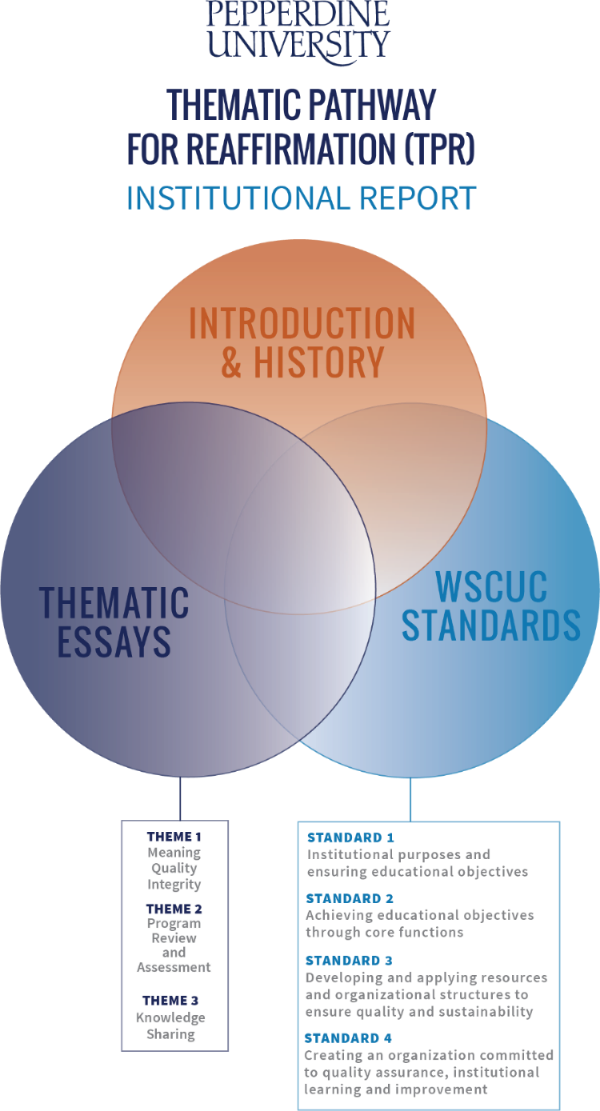TPR Report & WSCUC Steering Committee
Co-Chairs:
• Lisa Bortman, Associate Provost, Office of Institutional Effectiveness; Accreditation Liaison Officer (ALO)
• April Marshall, Professor of Hispanic Studies, International Studies and Languages Division, Seaver College
Faculty:
• Bradley Griffin, Divisional Dean, Fine Arts Division, Seaver College
• Katie Dodds, Associate Director of Library Services, Library, School of Law, Assistant Professor, School of Law
• Kendra Killpatrick, Associate Dean, Seaver College, Professor of Mathematics, Natural Science Division, Seaver College
• Jay Brewster, Professor of Biology and Frank R. Seaver Chair of the Natural Science Division, Associate Provost
• Charla Griffy- Brown, Professor, PGBS
Administration:
• Rick R. Marrs, Provost & Chief Academic Officer, Provost
• Lee Kats, Vice Provost for Research and Strategic Initiatives
• Jonathan See, Chief Information Officer, Information Technology
• Michelle Blas, Senior Director, Student Success, Student Services, GSEP
• Sandra Harrison, Director, Office of Student Accessibility • Greg Ramirez, Director of Financial Planning and Malibu Operations
Staff:
• Kailee Rogers, Coordinator, Assessment
• Lindsay Jacobs, Director of Academic Administration and Executive Assistant to the Provost
Introduction, Mission, Past Issues
Institutional Report
The Pepperdine community began the WSCUC 2021 reaffirmation process in the fall of 2018. Why two and a half years prior to our WSCUC visit? That is because this process asks for more than just reporting, it asks for self-identified areas of improvement.
We began our process by developing a WSCUC Steering Committee with membership representation across all five Schools and Student Life. Our next step was to audit the community in an attempt to identify our strengths and areas of growth in relation to the WSCUC Standards and criteria for review. Based on this the Steering Committee and University assessment committee (ASLC) choose themes. The first two themes came directly from the WSCUC reaffirmation process. The first theme is Meaning, Quality and Integrity of the Degree, and the second theme is Assessment and Program Review. This was followed by a year of inquiry, data collection and discussions in these areas. We also brought in a consultant to help us with our examination. Our investigation revealed that our educational effectiveness infrastructure (assessment) was progressing but there were final aspects of this processes we had not yet achieved but desired to. It was important to us to ensure that student excellence and student learning were at the center of this process. We also wanted to find ways to make this process part of our culture of teaching learning and decision making. Our third theme evolved from examining all of the criteria with the committees and stakeholders resulting in a decision for a third theme. The decision was made that we would benefit as an organization if we developed better ways to share information and knowledge. The committees would like to devote time and resources to develop effective and creative ways for us to share knowledge.
We are now excited to move forward and see how this process will make us stronger.
WSCUC Thematic Pathways
https://www.wscuc.org/annoucements/thematic-pathway-reaffirmation-tpr
